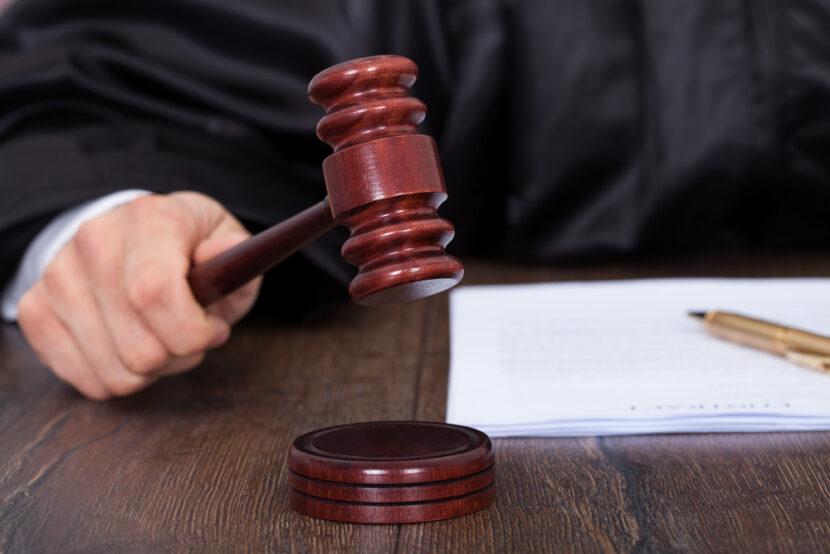GROSSETO, Italy – The captain of the capsized Costa Concordia cruise ship was convicted and sentenced Wednesday to 16 years and one month in prison for manslaughter, causing the 2012 shipwreck that claimed 32 lives and abandoning the luxury liner while many passengers and crew were still aboard.
The punishment for Francesco Schettino was 10 years than the prison term sought by prosecutors, who told the court the Concordia’s captain was a “reckless idiot.”
The three-judge panel handed down 10 years for 32 counts of manslaughter, five years for causing the Jan. 13, 2012, shipwreck when the Concordia rammed a reef near Giglio island, and one year for abandoning the ship while many of the luxury liner’s 4,200 passengers and crew were still aboard during a chaotic, delayed evacuation.
The court added a month to the sentence for Schettino’s downplaying the gravity of the problem in his communications with maritime authorities.
Schettino wasn’t present when Judge Giovanni Puliatti read out the verdict in a Grosseto theatre, as is his right under Italian law.
His lawyer, Domenico Pepe, expressed some satisfaction that the court gave Schettino 10 years less than prosecutors demanded, but said “16 years are a lot.” Pepe said he would appeal the decision. His lawyers said they hadn’t yet spoken by phone with the defendant.
In court earlier Wednesday, the former captain told the court earlier he was being “sacrificed” to safeguard the economic interests of his employer and broke down in sobs immediately before the panel began deliberating.
Schettino said the verdict “should have involved an entire organization and instead sees me as the only defendant.”
“My head was sacrificed to serve economic interests,” the 54-year-old Neapolitan seaman said, unable to finish his statement.
The court, which also barred him from operating as a ship’s captain for five years, rejected prosecutors’ request that Schettino be immediately arrested, saying he had participated in the trial and didn’t pose a flight risk. In Italy, defendants have two levels of appeals and sentences don’t begin being served until those appeals are exhausted.
Testimony at the trial put the spotlight on errors by other crew and equipment malfunctions after the Concordia smashed into a jagged reef when Schettino steered the ship close to the island of Giglio while passengers were having supper.
The reef gashed the hull, seawater rushed in and the Concordia listed badly, finally ending up on its side outside Giglio’s port. Autopsies determined that victims drowned aboard ship or in the sea after either falling or jumping off the ship during a chaotic, delayed evacuation.
Schettino contended that no one died because of the collision, but because of problems beyond his control. Those factors included a helmsman who botched Schettino’s orders immediately before and after the collision, and crew members who weren’t fluent in English or in Italian, the working language of the ship.
An emergency generator failed after the crash, and water-tight compartment doors also didn’t work properly. Survivors also said they weren’t given emergency drills after they started what was supposed to be a weeklong Mediterranean cruise.
The three-judge panel deliberated for eight hours, much of that in a dressing room off the theatre where the trial was held due to the huge public interest the trial, involving so many victims, was expected to generate – though few seats were ever filled in the 70 hearings.
One survivor who did come, Frenchwoman Anne Decre, blasted Schettino’s punishment as far short of what he deserved.
“Thirty-two dead. That’s about six months for every person who died,” Decre said, referring to the 16 years Schettino received.
Like other survivors, Decre recalled how many of the passengers weren’t given any safety drills when they began the Mediterranean cruise.
“Can you imagine, on an airplane, not being told where the safety exits are?” she asked rhetorically.
It took more than a half-hour to read out all the names, one by one, of the survivors and dead, upon whose behalf civil suits were filed for damages from Costa Crociere Spa.
The total of all damages and court costs of the lawyers who brought the suits, was not immediate available.
But most awards totalled tens of thousands of euros, far more than the 11,000 euros Costa paid to survivors who declined to press civil suits.
While insisting Schettino deserves conviction and a stiff prison sentence, the plaintiffs’ lawyers had lamented to the court that no one from the cruise company’s upper echelons was put on trial.
Four Concordia crew members and Costa’s land-based crisis co-ordinator were allowed to plea bargain. None is serving prison time.
Costa Crociere’s lawyer at the trial rejected the assertion that the company bore any blame in the shipwreck. Company lawyer Marco De Luca said the court’s awards essentially recognized that what Costa paid out ahead of the trial essential was fair. He called the verdict “balanced.”
Cruise travel has been a growing part of tourism, one of Italy’s main industries. Costa Crociere SpA has been a big customer of an Italian state-controlled shipbuilder.
In a last appeal to the court, defence lawyer Pepe contended the shipwreck was an “accident…and successive events led to the deaths of these poor people.”

